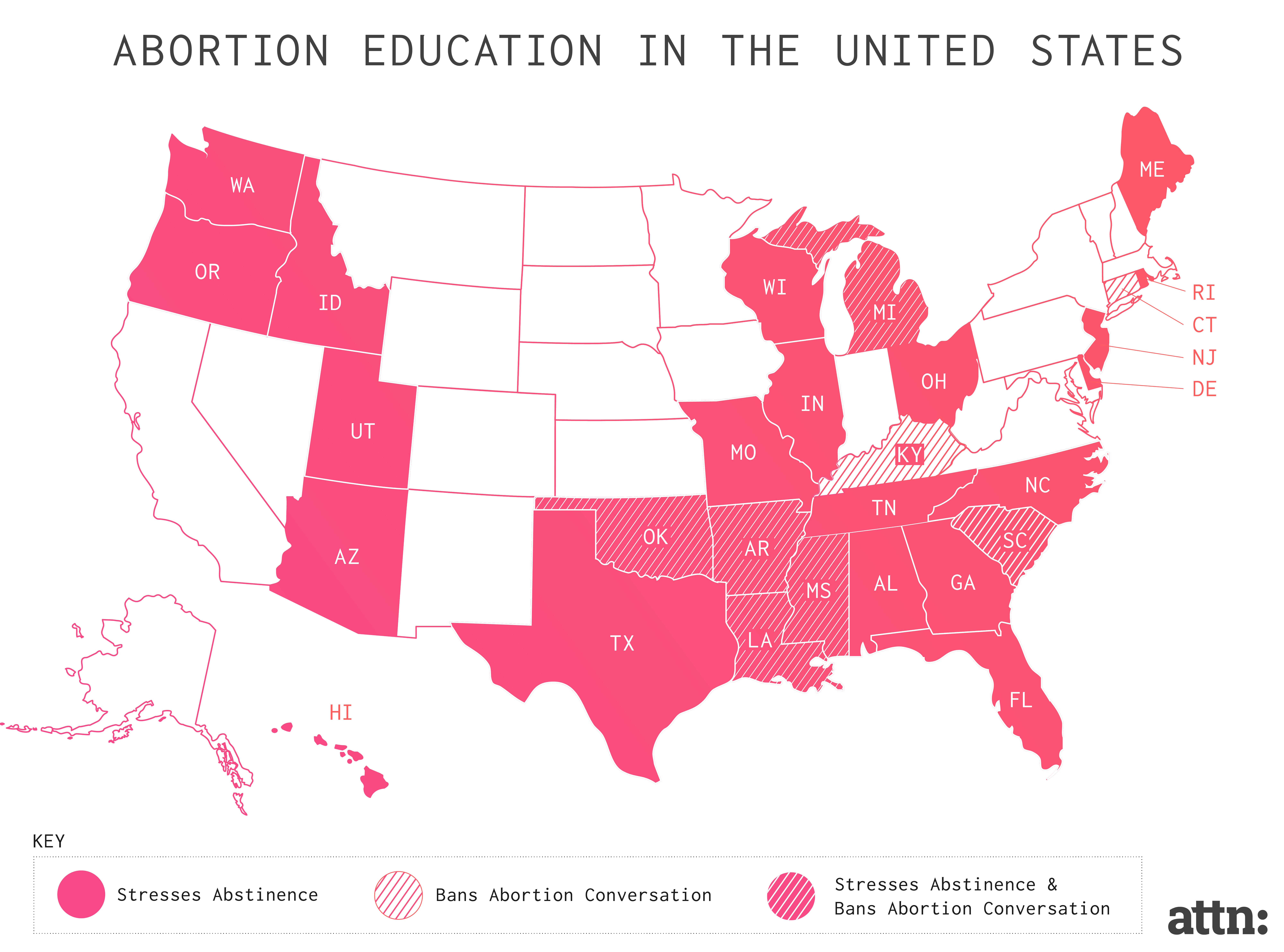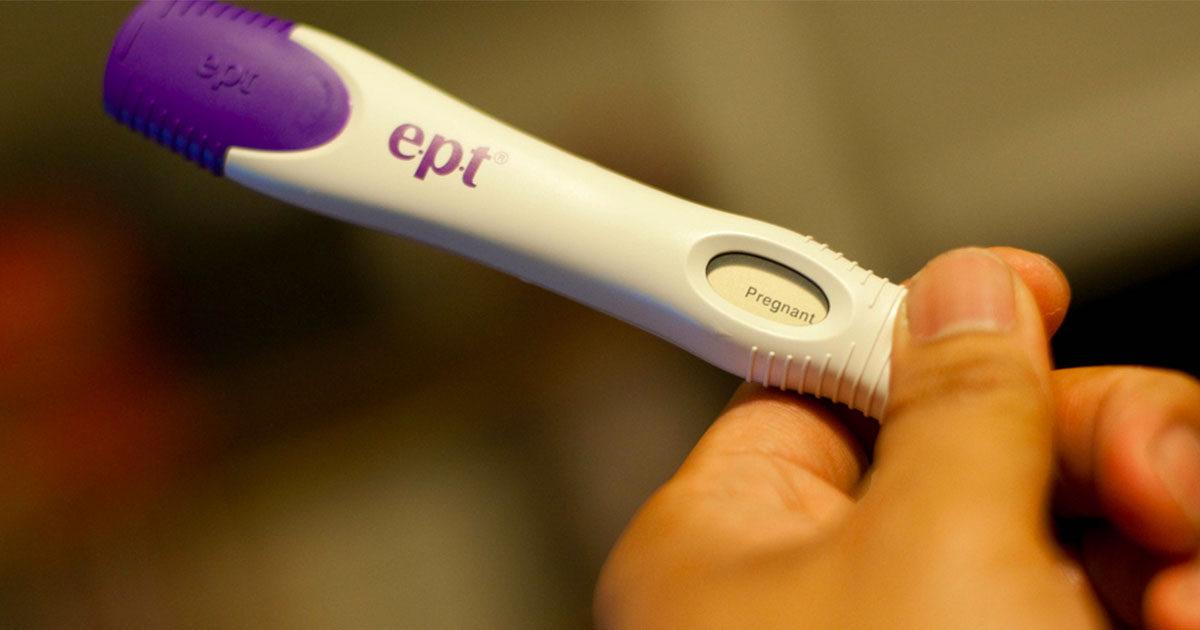Disturbing Map Reveals Which States Ban Teaching High Schoolers About Abortion

By:
Medical procedures used to terminate pregnancies remain widely misunderstood. Anti-abortion groups, politicians, and media outlets spread their fair share of anti-abortion myths and falsehoods.
But most U.S. sex education classes aren't providing the facts, either.
Eight states explicitly ban teachers from discussing abortion or offering referrals about abortion procedures.
They are Arkansas, Connecticut, Kentucky, Louisiana, Michigan, Mississippi, Oklahoma, and South Carolina, Vice's Broadly reported.
 Kristin Hodge/ATTN:
Kristin Hodge/ATTN:
Oklahoma's anti-abortion crusade is particularly aggressive.
Republican Gov. Mary Fallin signed a bill into law in June aiming to create an "an abortion-free society" in Oklahoma.
The bill mandated the creation and distribution of anti-abortion materials in schools and is funded by state's Department of Education, The Frisky reported.
 Stocksy/Vera Lair - stocksy.com
Stocksy/Vera Lair - stocksy.com
The law also allocated money to the Humanity of the Unborn Child Fund, a high school sex ed program school boards can choose to implement or opt out of. This program requires educators to "consistently teach that abortion kills a living human being."
Connecticut, Louisiana, and Michigan laws stress the omission of abortion materials and forbid teachers to discuss the option with students.
 Flickr/dongkwan - flic.kr
Flickr/dongkwan - flic.kr
The exact wording and specific requirements of these laws (which are excerpted on Broadly) vary by state.
That's just the tip of the iceberg.
Only 24 states and the District of Columbia require sex education, and 26 states require that sex ed stress abstinence if it is taught at all, according to an October report from the Guttmacher Institute.
Only 13 U.S. states require sex ed courses to be medically accurate, the report added.
 Wikimedia - wikimedia.org
Wikimedia - wikimedia.org
Failing to present young people with accurate medical information about abortions may leave them especially vulnerable to urban legends and misinformation.
"False myths would always come about from classroom discussions," sex education instructor Chanin Santini told ATTN:. "Many students had religious beliefs that created misinformation about abortions. I even had countless high school students think that they could perform an abortion by douching with Pepsi or Mountain Dew."
Santini has taught sex ed in New York and Philadelphia public and private high schools and has worked with community colleges and universities in California.
"Many students [did] not understand the difference between taking a morning after pill and a late-term, full on D&C," Santini added.
A dilation and curettage procedure (commonly known as a D&C) is an abortion performed by removing uterine tissue, according to the Mayo Clinic.
The morning after pill is an emergency contraceptive you can purchase at a drug store. This can prevent a pregnancy if taken up to five days after you have unprotected sex or sex in which another birth control method fails (a condom breaks, you forgot to take the pill, etc.).
Sex ed is simply one place where the medical realities of abortion can get overwhelmed by religion or deceptive partisan rhetoric.
Opinions about abortion are disproportionately fueled by moral views, compared to other embryonic medical procedures, according to 2013 Pew data.
There is nothing inherently wrong with factoring ethical beliefs into personal medical decisions. Even trained nurses struggle to balance their scientific knowledge and personal views in areas such as end-of-life care and patient's rights, a 2009 study found.
But most of us aren't trained nurses.
The decision to terminate a pregnancy should be informed by basic facts about the procedure — which rarely pop up in high school classrooms. For the facts, you can read this fact sheet from the University of Colorado.
